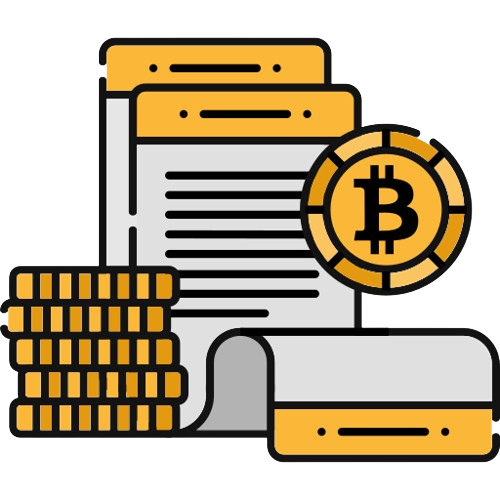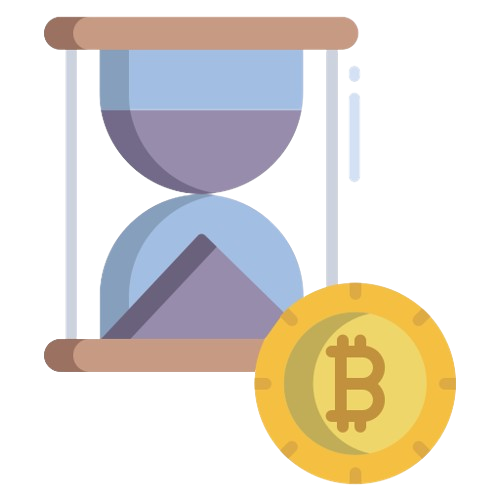
As cryptocurrencies like Bitcoin continue to gain mainstream traction, the surrounding ecosystem of products and services is rapidly evolving. Two important developments are Bitcoin wallets, which enable users to store and transact cryptocurrency, and decentralized autonomous organizations (DAOs), which facilitate collaboration and decision-making among groups of cryptocurrency users. Together, these innovations are shaping the future landscape of finance and peer-to-peer cooperation.
The Rise of Crypto Wallets
Cryptocurrency wallets play a vital role in the burgeoning digital economy by allowing users to securely store their holdings and conduct transactions. As the premiere cryptocurrency, Bitcoin sparked great interest in crypto wallets for saving, sending, and receiving coins and tokens. Today there is a broad selection to match one’s preferences, with the best Bitcoin wallet balancing aspects like security, ease of use, and special features.
In the early years of Bitcoin, wallets were predominantly software programs installed locally on computers. These provided users direct control over their private keys for signing transactions. However, the responsibility of backing up wallet files proved overly complex for some. Web-based wallets emerged to streamline the user experience via simplified access from any internet-connected device. Though convenient, these came with risks regarding the custodian holding user funds.
The ongoing quest to blend security and simplicity has birthed an array of crypto wallet options. Custodial wallets from reputable crypto exchanges continue gaining favor among traders. Many companies also now offer combined software and web wallet services with useful tools and safeguards in place. Hardware wallets that store private keys offline protect larger holdings. Multi-currency wallets have additionally enabled support for numerous digital assets within one interface.
DAO Technology: Decentralized Governance

Cryptocurrency ideals of distributed authority and community-driven development spawned the concept of decentralized autonomous organizations. Often called DAOs, these entities leverage blockchain technologies like smart contracts to codify rules and automate governance in a transparent, tamper-proof manner.
DAOs generally have no central leadership; rather, they employ decentralized consensus mechanisms enabling all participants to equally guide decisions. Voting weights correspond to each member’s stake, as represented by tokens conferring involvement rights. Through this collaborative structure, DAOs can pool capital in fungible cryptocurrencies and collectively determine how to deploy those assets based on the group’s priorities.
Early DAO experiments confronted technical and social challenges but illuminated a promising path for distributed governance. Today DAO platforms are gaining more reliable infrastructure and tooling. As participants fine-tune models for incentivizing constructive behaviors and managing conflicts of interest, community-run DAOs are better positioned to flourish. Their capacities now range from coordinating shared workspaces to funding scientific research and beyond.
The Union of Wallets and DAOs
Though rising concurrently, crypto wallets and DAOs initially followed fairly separate tracks serving distinct purposes. But as cryptocurrencies permeate everyday transactions while also fostering novel forms of decentralized collaboration, these two domains are increasingly set to converge.
Intuitive wallet interfaces are critical for average consumers to grasp transacting in digital coins and tokens. Meanwhile, DAOs need ways for members to easily manage personal assets and cast votes. Accordingly, user-friendly wallets with robust DAO features could soon become a nexus enabling broad-based participation in cryptocurrency and Web3 ecosystems.
Some wallet services already cater to the DAO sphere by simplifying access and transactions around governance tokens. Features like displaying token balances, tracking proposals and voting, and even integrating common DAO platforms into the wallet interface smooth onboarding. As wallet providers roll out more tools and educational content around DAO processes, they stand to significantly lower barriers to entry.
Likewise, DAO platforms enabling community fundraising, transparent accounting, voting utilities, and automated pay-outs could thrive by tightening wallet integrations. Built-in wallets reducing steps to purchase native tokens and execute proposals would quicken real-world testing. Customizable branded DAO wallets raise visibility while offering members souvenirs of their involvement.
Through these combined functionalities, cryptocurrency wallets are shaping up as indispensable hubs granting users their Web3 identities and gateways into decentralized collaboration.
The Evolution of Personal Empowerment
Looking ahead, integrations between crypto wallet technologies and DAO frameworks could profoundly expand opportunities for collective action. As online cooperation need not adhere to traditional legal structures or geographic boundaries, wholly novel pursuits become conceivable.
DAO treasuries fluidly pooled via wallets promise to support causes once dependent on charity or public funding. Grassroots campaigns tackling local issues like wildlife conservation, homelessness, or community beautification could gain traction through micro-donations of cryptocurrency. Accessible DAO creation templates from reputable providers might even spur experimentation with decentralized models for childcare co-ops, home-schooling collectives, or independent media outlets.
For enterprises as well, wallet-powered DAOs offer innovative possibilities with decentralized stakeholder participation. Customer loyalty programs, supply chain coordination, employee profit sharing, and even spin-off ventures could run and be funded through such structures. Early blueprints have already emerged across spheres like journalism, gaming, music, and more.
Ultimately, by conferring votes and disbursing rewards via integrated wallets, well-orchestrated DAOs stand to unlock new heights of personal empowerment and democratized value creation. When communities growing around shared values freely exchange ideas and cryptocurrency from the convenience of their wallets, once-impossible visions can take on concrete form.
The Way Forward

Cryptocurrency wallets and decentralized autonomous organizations are each groundbreaking developments in their own right. Crypto wallets enable users to securely transact novel digital assets and participate in Web3 activities. DAOs establish cooperative frameworks for leaderless groups to pool resources and self-direct outcomes.
As these dual infrastructures continue maturing, their convergence promises to ignite an abundance of grassroots initiatives. By merging crypto’s superb mediums for value with DAOs’ facilities for decentralized coordination, personalized wallets embedding DAO functions can give rise to thriving ecosystems of collaboration.
Myriad challenges around technology and governance must still be worked through. However, equipping communities and organizations of all types to freely explore peer-directed operational models is the very epitome of permissionless innovation. Savvy crypto wallet services recognizing DAO participation as a killer feature stand to play a defining role in this shifting landscape of cooperation. And by gracefully easing more users into these interactive spaces of creation, they will be midwiving ever higher levels of collective human potential.
Conclusion
The synthesis of Bitcoin wallets and decentralized autonomous organizations (DAOs) signals a transformative phase in the cryptocurrency landscape. Evolving from basic software to comprehensive solutions, crypto wallets facilitate secure transactions and seamless participation in Web3 activities. Simultaneously, DAOs, powered by decentralized governance, have matured into influential entities for collaborative decision-making. This integration represents more than a mere technological merger; it signifies a paradigm shift towards personal empowerment and democratized value creation. As user-friendly wallets seamlessly incorporate robust DAO features, they emerge as gateways into decentralized collaboration and Web3 identities, promising a future of unparalleled cooperation and innovation in decentralized finance.